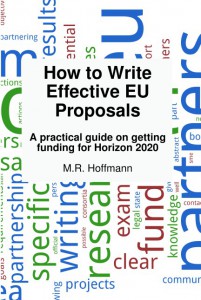There is much advice going around on writing successful proposals for Horizon 2020. Much is common sense, and most experienced participants have their own specific strategies for partner search and proposal preparation. However there were not many data points available on what problems and obstacles newcomers to Horizon 2020 faced. I prefer to give advice based on data, and have conducted a Horizon 2020 survey. Before writing How to write effective EU proposals I asked about problems in applying for Horizon 2020 funding.
The survey results say that finding partners is the biggest obstacle Horizon 2020 applicants face, indicated by 75% of the respondents. And another 45% said networking is difficult. I had an idea of what applicants find difficult, but I wanted to hear what others think about the Horizon 2020 application process. Therefore I conducted a survey to understand the difficulties faced by Horizon 2020 applicants.
Many Horizon 2020 newcomers feel overwhelmed by the complexity of applying for Horizon 2020. On the other hand, experienced proposal writers often see Horizon 2020 as a challenging, but well-known proposal writing competition. This dual view originates in the curse of knowledge: Once you are an expert in an area, you “forget” how it feels to start to learning. This has the unfortunate consequence that advice by experts is often less usable by novices (while still being helpful for intermediate learners). To address this problem in Horizon 2020, I conducted a survey about what is perceived as most difficult in Horizon 2020, and which applicant skills need most improvement.
Horizon 2020 Survey Results
The table below shows the responses to the question “What are the most difficult aspects of preparing a Horizon 2020 application?”
| % |
|---|
| finding partners | 75 |
| writing | 55 |
| how to start | 50 |
| networking | 45 |
| finding relevant information | 23 |
| other | 9 |
I also asked which applicant skills need most improvement. Here the answers were different: a whopping 70% said that writing skills needed improvement, with only 55% stating networking.
| % |
|---|
| writing | 70 |
| networking | 55 |
| organizational skills | 48 |
| other | 2 |
Horizon 2020 Book Recommendation
In order to address the problem of learning to find partners and networking, together with learning to write a proposal, I asked the question “Would you recommend a practical book about Horizon 2020 for applicants?”
The answer was clear: 96% recommended such a book.
The answers to the question “Why do you think a book on Horizon 2020 is important?” were more varied. Here are some of the responses:
- It will help applicants in developing proposals and networking with
other partners. - Because many applicants feel lost.
- H2020 is too complex for newcomers.
- It should be an effective guide to how to start the process.
- It can facilitate communication.
- The confusion about what to do and how (when making a project
proposal) is preventing many from participation in H2020.
These answers show that a book on Horizon 2020 should focus on an simple, understandable introduction to Horizon 2020. The contents should help with finding partners, networking and proposal writing.
The book “How to write effective EU proposals” could be the solution to these  problems. The book was written to address the issues the survey uncovered. Although some results were to be expected, the survey reinforced my view that starters in Horizon 2020 are overwhelmed by the information on the EU’s sites and lack a simple and clear introduction to Horizon 2020.
problems. The book was written to address the issues the survey uncovered. Although some results were to be expected, the survey reinforced my view that starters in Horizon 2020 are overwhelmed by the information on the EU’s sites and lack a simple and clear introduction to Horizon 2020.
